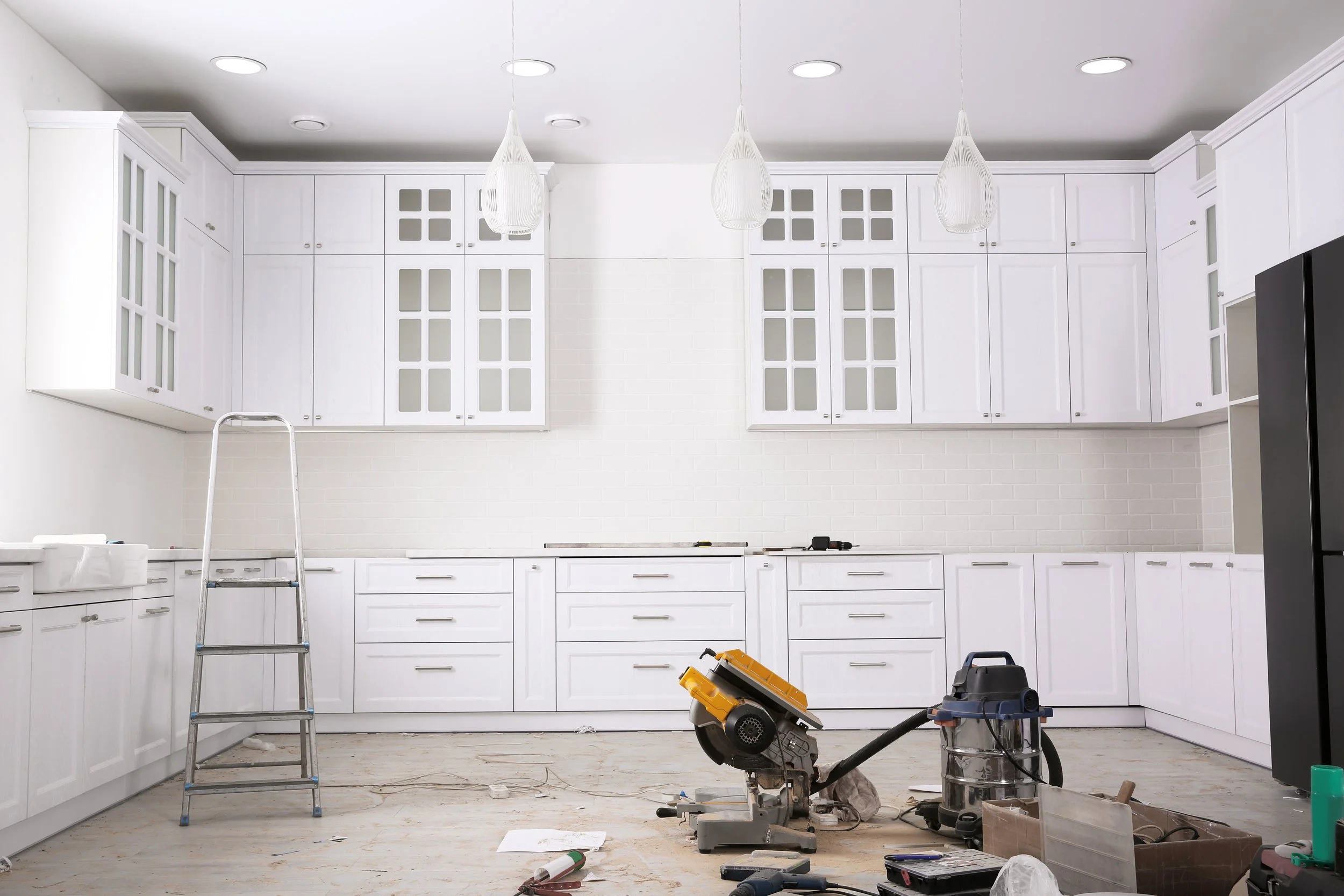How to plan a kitchen renovation
Renovating your kitchen can significantly improve your home’s functionality, style and even value. A well-planned renovation will ensure the process is smooth from the start, with fewer unexpected costs, and a final result that is everything you visualised and more.
But where do you start when it comes to planning a kitchen renovation? Keep reading to find out.
What to consider when renovating a kitchen
There are several factors you should take into consideration when it comes to renovating a kitchen. So, before you start unscrewing your cabinets or tearing down walls, here’s what you should think about.
Budget
First and foremost, it’s important to set yourself a realistic budget. Start by determining how much you can afford to spend, then break it down into categories, such as materials, labour, appliances and fixtures. If you plan on making significant structural changes to your kitchen space, such as building an extension to make the room bigger, you should factor in expenses for planning permission too. It’s also a good idea to set aside a 10 to 20% buffer for unexpected expenses that could arise from price increases for materials, hidden structural issues and extra labour costs.
It’s likely that you’ll find labour and materials take up the largest portion of the cost, so make sure that you get several quotes and compare them carefully - not just by price, but in terms of quality, reputation and workmanship to ensure your budget goes as far as possible.
Aesthetic
Whether you go for a super sleek, modern vibe or a more traditional, cosy farmhouse feel, the aesthetic of your kitchen sets the tone for the whole space, so take time to define the exact style you want. You might want to start by choosing a colour scheme that satisfies your taste and also complements the rest of your home. Do you prefer a more neutral colour palette of buttery cream, soft beige or crisp white, or do you want to make a statement with pops of playful colours?It’s important to think about materials too. If you’re keen to create a snug kitchen space, wood can help bring warmth, while stone and tiles are ideal for a more striking appearance. The finishing touches can make or break the feel of your space too. Consider whether you prefer matte, glossy or brushed metal - or even a mix for a stunning contrast.
If you’re stuck for inspiration, why not create a mood board? Pinterest is packed with kitchen decor ideas, or you could peruse interior magazines. You could even visit a kitchen showroom in person. At Merilyn Phillips, our team invites you into our showroom to see our beautifully designed kitchens up close to help you figure out exactly what you want yours to look like.
Practicality
While it’s important that your kitchen looks good, it needs to be functional too. A good place to start is the “kitchen triangle” - a concept used to determine an efficient, practical layout between your sink, hob and fridge. The idea is that these three areas should be positioned in such a way that you can move easily between them with minimal obstruction.
Making sure you have ample counter space is a key to achieving a practical design. You need to have enough room to prepare meals, as well as space for your essential everyday appliances.
Storage is also important. Especially if you’re short on square footage, think about clever solutions, such as deep drawers, overhead cabinets and pull-out larder-style cupboards to maximise the space available to you.
The positioning of your appliances is crucial too. Make sure you can open your oven, fridge and dishwasher without blocking walkways.
Preparation
While it is an exciting time, knowing how to cope when your kitchen is being renovated can be tricky. It can feel inconvenient and unsettling - but preparing ahead of time can help make the process as smooth as possible.
For example, timing is crucial, and you might find it easier to deal with your kitchen renovation if it is planned at a time when you have a quiet period in your calendar, with enough time to allow for delays. Speak to the company installing your kitchen to arrange the renovation for a time that suits you.
You could also prepare for the upcoming project by thinking about how you will manage without your kitchen for a period of time. You might want to set up a temporary kitchen space elsewhere in your home so you still have access to the basics, such as your kettle, microwave and space to prepare quick and easy meals. Being prepared in advance will help reduce your stress and ensure the project stays on track.
Planning a kitchen renovation needn’t be difficult. If you have a clear plan in mind, and you’re realistic in terms of budget and timescales, you should find the process more manageable - and even enjoyable - as your dream kitchen takes shape.

